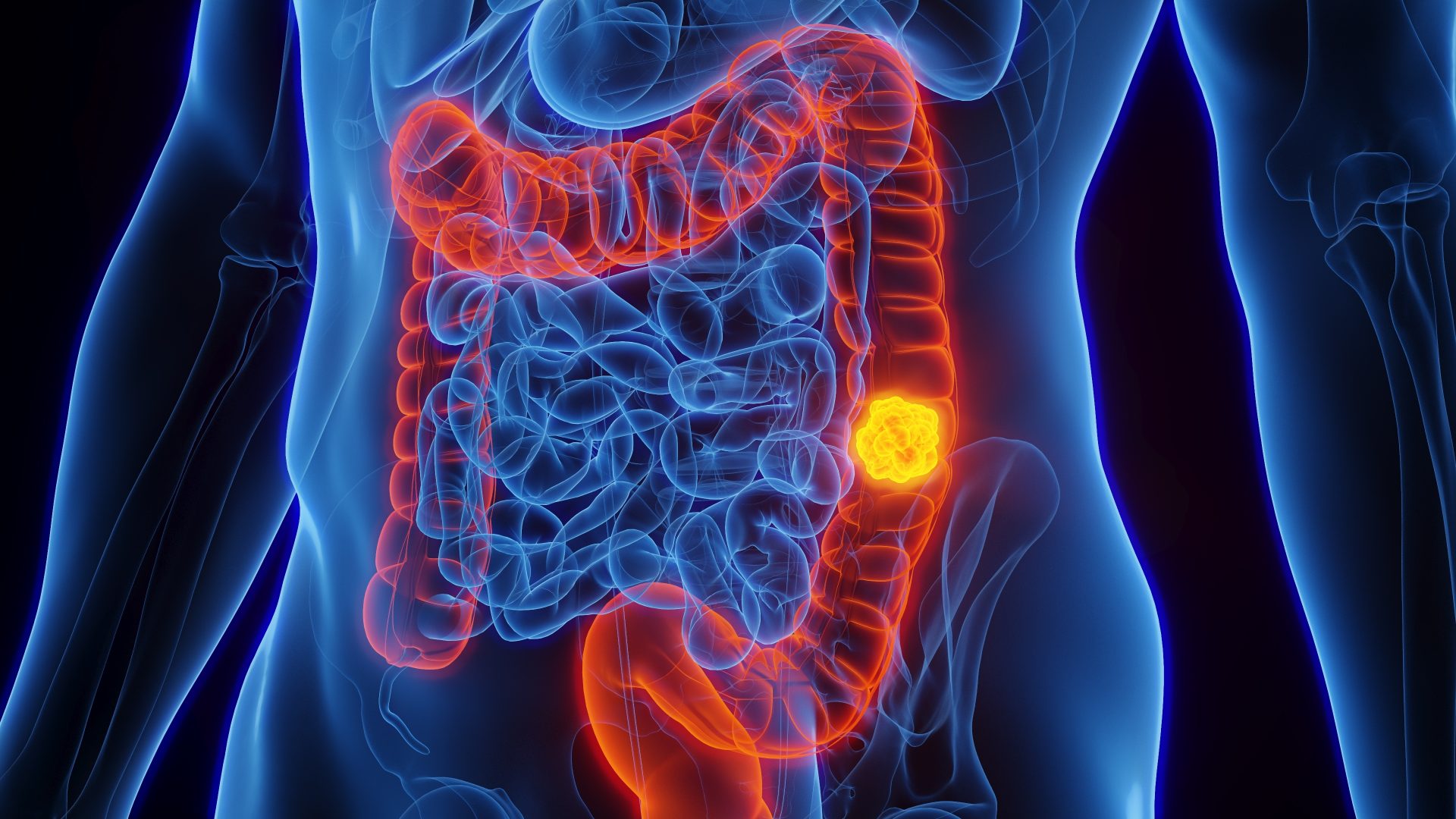Colorectal cancer cases among younger adults have surged dramatically over the past two decades, creating an alarming health trend that demands immediate attention. While this disease was once considered primarily an older adult’s concern, medical professionals now see increasing numbers of patients in their 20s, 30s and 40s receiving devastating diagnoses.
The statistics paint a concerning picture. Early-onset colorectal cancer rates have climbed by approximately 2% annually since the 1990s, with millennials facing double the risk of colon cancer and quadruple the risk of rectal cancer compared to baby boomers at the same age. This troubling trend has prompted a fundamental shift in how we approach prevention and screening for this potentially deadly disease.
Understanding the factors that contribute to early-onset colorectal cancer becomes crucial for anyone seeking to protect their long-term health. The good news lies in the fact that many risk factors remain within our control, offering hope through proactive lifestyle modifications and informed health decisions.
1. Transform your diet with fiber-rich whole foods
The foundation of colon cancer prevention begins with what you put on your plate every single day. A diet rich in fiber serves as your first line of defense against colorectal cancer development, working to maintain healthy digestive function and reduce inflammation throughout your intestinal tract.
Vegetables, fruits, legumes and whole grains should dominate your daily meals, providing the essential nutrients and fiber your colon needs to function optimally. Aim for at least 25-35 grams of fiber daily through natural food sources rather than supplements whenever possible.
Cruciferous vegetables like broccoli, cauliflower, Brussels sprouts and kale contain powerful compounds called glucosinolates that help your body eliminate potential carcinogens. Berries provide anthocyanins and other antioxidants that combat cellular damage, while beans and lentils offer both soluble and insoluble fiber that keeps your digestive system running smoothly.
The Mediterranean diet pattern has shown particularly promising results in colorectal cancer prevention, emphasizing olive oil, fish, nuts, seeds and plenty of colorful produce. This eating approach naturally limits processed foods while maximizing nutrient density and anti-inflammatory compounds.
2. Drastically reduce processed and red meat consumption
The connection between processed meat consumption and colorectal cancer risk has been firmly established through extensive research spanning multiple decades. Processed meats like bacon, sausage, hot dogs and deli meats contain nitrates, nitrites and other preservatives that form potentially harmful compounds during digestion.
Red meat consumption also contributes to increased cancer risk, particularly when prepared using high-heat cooking methods like grilling, broiling or frying. These cooking techniques can create heterocyclic amines and polycyclic aromatic hydrocarbons, both recognized as potential carcinogens.
Limiting red meat to no more than three servings per week and avoiding processed meats entirely can significantly reduce your colorectal cancer risk. When you do consume red meat, choose grass-fed options when possible and prepare them using gentler cooking methods like braising, stewing or slow cooking.
Replace these protein sources with fish, poultry, plant-based proteins, eggs and dairy products to maintain adequate protein intake while supporting your digestive health. Cold-water fish like salmon, sardines and mackerel provide omega-3 fatty acids that help reduce inflammation throughout your body.
3. Maintain a healthy weight through consistent habits
Excess body weight, particularly around the midsection, creates a cascade of metabolic changes that increase colorectal cancer risk. Obesity promotes chronic inflammation, alters hormone levels and affects how your body processes insulin, all factors that can contribute to cancer development.
Maintaining a healthy body mass index between 18.5 and 24.9 requires a comprehensive approach combining mindful eating habits with regular physical activity. Focus on portion control, eating slowly and stopping when you feel satisfied rather than completely full.
Weight management becomes easier when you prioritize whole foods over processed options, as these natural choices tend to be more filling while providing fewer calories per serving. Drinking plenty of water before and during meals can also help with satiety and prevent overeating.
Track your progress using measurements and how your clothes fit rather than relying solely on scale weight, as muscle weighs more than fat but contributes to better overall health outcomes.
4. Exercise regularly with both cardio and strength training
Physical activity serves as a powerful tool in colorectal cancer prevention, working through multiple mechanisms to protect your digestive health. Regular exercise helps maintain healthy body weight, reduces inflammation, improves immune function and promotes healthy bowel movements.
Aim for at least 150 minutes of moderate-intensity aerobic exercise or 75 minutes of vigorous-intensity exercise weekly, combined with strength training exercises at least twice per week. This recommendation aligns with general health guidelines while providing specific benefits for colon health.
Cardiovascular exercises like brisk walking, swimming, cycling or dancing help stimulate healthy digestion and reduce the time food waste spends in your colon. Shorter transit times mean fewer opportunities for harmful substances to contact your intestinal lining.
Strength training builds lean muscle mass, which improves your metabolic rate and helps maintain healthy body composition as you age. Even bodyweight exercises like push-ups, squats and planks can provide significant benefits when performed consistently.
5. Eliminate tobacco and limit alcohol consumption
Tobacco use in any form significantly increases your risk of developing colorectal cancer, along with numerous other health complications. Smoking introduces dozens of carcinogenic chemicals into your bloodstream, many of which eventually reach your colon and rectum through circulation.
The cancer-causing effects of tobacco extend far beyond lung health, affecting virtually every organ system in your body. Quitting smoking at any age provides immediate and long-term health benefits, with cancer risk beginning to decrease within just a few years of cessation.
Alcohol consumption also contributes to colorectal cancer risk, particularly when consumed in large quantities over extended periods. Alcohol metabolism produces acetaldehyde, a toxic compound that can damage DNA and proteins within your cells.
Limiting alcohol intake to no more than one drink per day for women and two drinks per day for men can help minimize this risk factor. Many people find that eliminating alcohol entirely improves their sleep quality, energy levels and overall well-being.
6. Prioritize quality sleep and stress management
Chronic sleep deprivation and elevated stress levels create hormonal imbalances that can compromise your immune system and increase cancer risk. Poor sleep quality affects the production of melatonin, a hormone with powerful antioxidant properties that helps protect against cellular damage.
Adults should aim for seven to nine hours of quality sleep nightly, maintaining consistent bedtime and wake-up times even on weekends. Creating a relaxing bedtime routine, keeping your bedroom cool and dark, and avoiding screens before sleep can improve sleep quality significantly.
Chronic stress triggers the release of cortisol and other stress hormones that promote inflammation throughout your body. Finding effective stress management techniques like meditation, deep breathing exercises, yoga or regular nature walks can help counteract these harmful effects.
Consider incorporating mindfulness practices into your daily routine, even if just for five to ten minutes per day. These brief sessions can help reset your nervous system and reduce the cumulative effects of daily stressors.
7. Get screened early and know your family history
While screening recommendations have traditionally focused on adults over 50, the rising incidence of early-onset colorectal cancer has prompted discussions about earlier screening for high-risk individuals. Understanding your family medical history becomes crucial in determining your personal risk level and appropriate screening timeline.
Pay attention to digestive symptoms that persist for more than a few weeks, including changes in bowel habits, blood in stool, unexplained weight loss, persistent abdominal pain or unusual fatigue. While these symptoms often have benign explanations, they warrant medical evaluation to rule out serious conditions.
Individuals with inflammatory bowel disease, certain genetic syndromes or strong family histories of colorectal cancer may need earlier and more frequent screening. Discuss your risk factors with healthcare providers to develop an appropriate surveillance plan.
The landscape of colorectal cancer prevention continues evolving as researchers identify new risk factors and protective strategies. By implementing these seven evidence-based approaches, young adults can take control of their health and significantly reduce their risk of developing this increasingly common disease. Prevention remains far more effective and less costly than treatment, making these lifestyle modifications some of the most valuable investments you can make in your long-term health and well-being.














